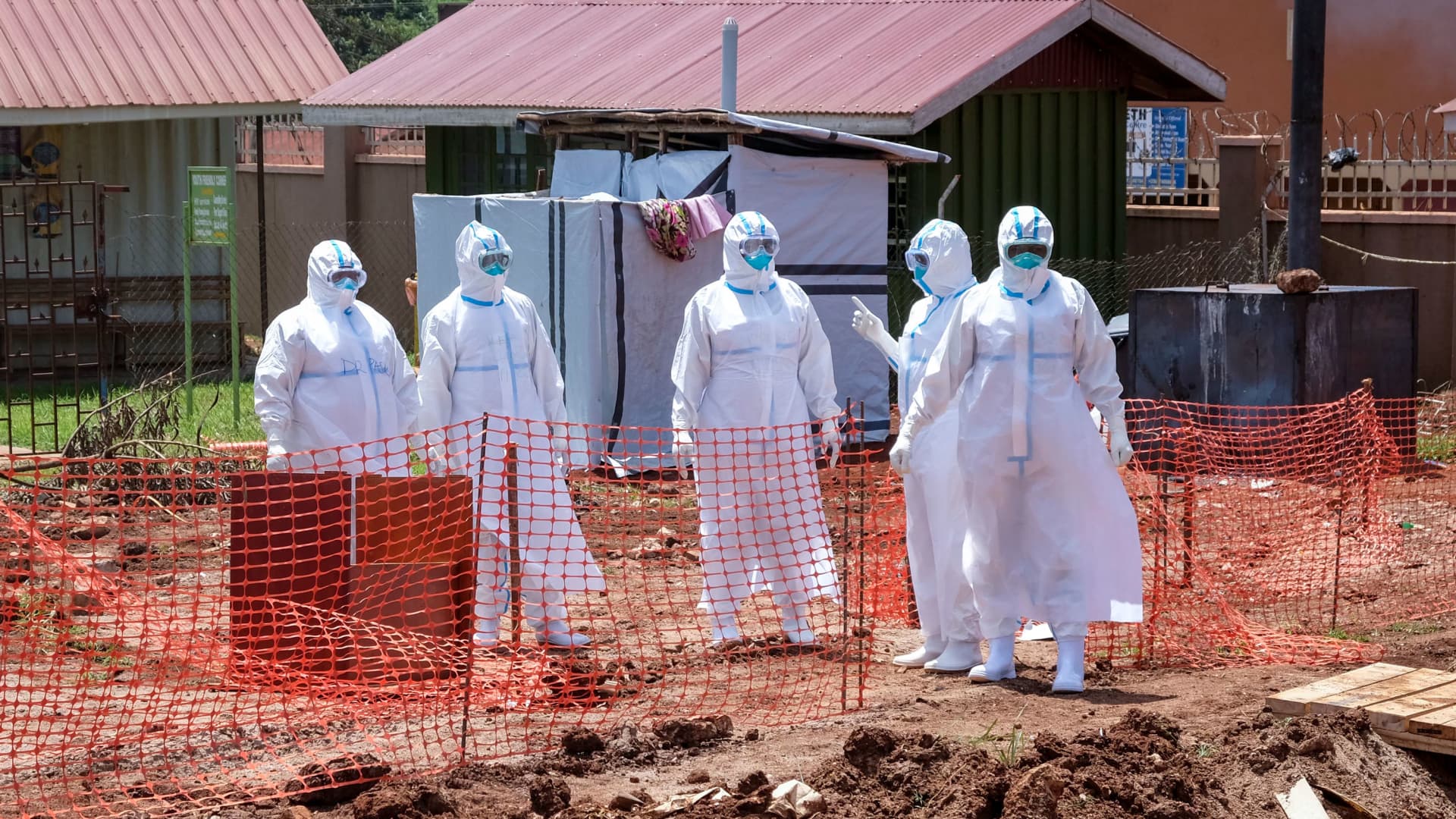
The World Health Organization is working with Uganda to prevent a deadly Ebola outbreak in the East African nation from spreading to neighboring nations, the global health agency’s chief said on Wednesday.
Health authorities in Uganda have identified 74 confirmed and probable cases of Ebola across five districts, according to the WHO. At least 39 people have died from the disease and 14 others have recovered from the disease. More than 660 people who were possibly exposed to the virus are under active follow-up.
“Our primary focus now is to support the government Uganda now to rapidly control and contain this outbreak, to stop it from spreading to neighboring districts and neighboring countries,” WHO Director General Tedros Adhanom Ghebreyesus said during a global health update in Geneva on Wednesday.
Uganda declared an outbreak of Ebola in late September after a person from a village in the central region of the country tested positive for the virus. There are no licensed vaccines or treatments for the strain that caused the outbreak, called Sudan ebolavirus.
Ebolavirus does not spread through airborne transmission. People catch the disease through direct contact with bodily fluids of a person who has fallen ill or died from the virus. It can also spread through contact with contaminated materials and infected animals.
Ebola is not contagious until symptoms appear, which can take between two and 21 days. On average, it takes about eight to 10 days for symptoms to show up.
The U.S. last week started directing travelers who spent time in Uganda to five airports for health screening before entering the country out of an abundance of caution. The airports are New York’s JFK, Newark, Atlanta, Chicago O’Hare and Washington Dulles. The health screenings apply to travelers who have been in Uganda within 21 days of their arrival in the U.S.
Airlines are providing passenger information to the Centers for Disease Control and Prevention so the agency can conduct follow-ups with the travelers, a federal health official said last week. This information is also being shared with state and local health departments.
There are no known cases of Ebola in the U.S. right now. In 2014, a man who had traveled in West Africa was diagnosed with Ebola after arriving in Dallas. The man died and two nurses who treated him caught the virus, though they both recovered. Seven other people who fell ill with Ebola while in West Africa were transported to the U.S. for treatment during the 2014 outbreak. Six recovered and one died.
The CDC issued an alert last week telling local health departments and physicians to be on the lookout for patients who have symptoms. Health-care professionals should obtain detailed travel history from patients suspected of having the disease, particularly those who have been in the affected areas of Uganda. The U.K. Health Security Agency has issued a similar alert in Britain.
Ebola symptoms include unexplained hemorrhaging, bleeding or bruising as well as fever, severe headaches, muscle and joint pain, weakness and fatigue, sore throat, loss of appetite, stomach pain, diarrhea and vomiting, according to the CDC.
U.S. Health Secretary Xavier Becerra last week offered his counterpart in Uganda support from the Health and Human Services Department.
Dr. Mike Ryan, head of the WHO’s health emergencies program, said on Wednesday that Uganda’s government needs more support from the international community to ramp up surveillance on the ground to contain the outbreak. Ryan said not enough health alerts are being issued at the local level.
“We are seeing good progress,” Ryan said. “It’s very important that we are not confident. Ebola brings surprises, infectious disease brings surprises.”







